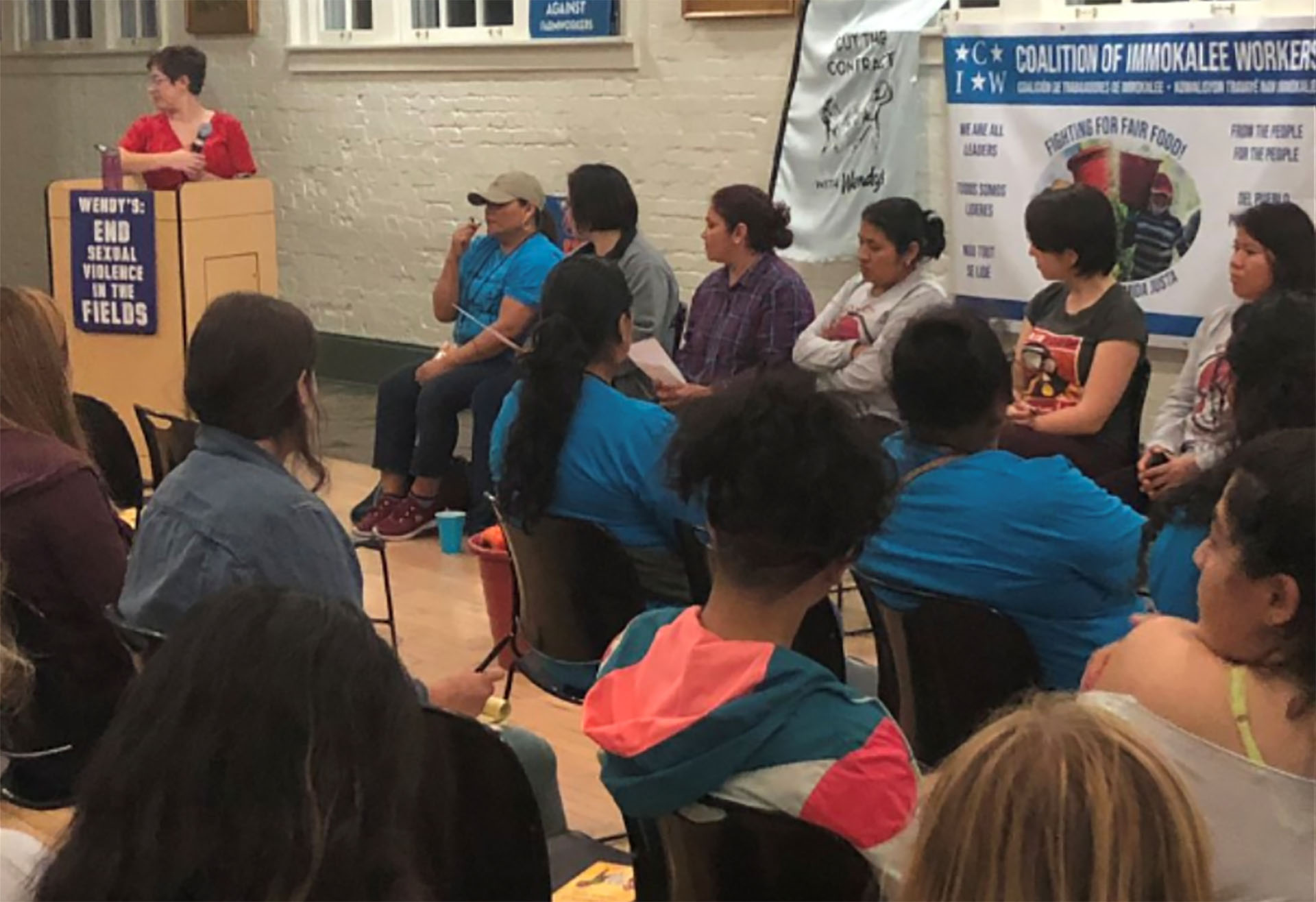By Samantha Baugus, James Everett, Andreina Fernandez, Kate Fletcher, Breanne Hooks , Elizabeth Lunior, Isabel Miceli, Pamala Proverbs

We hosted “Harvest without Violence,” a panel discussion featuring the Coalition of Immokalee Workers (CIW), in Ustler Hall on the evening of March 12. The event, a project of Dr. Manoucheka Celeste’s “Global Women of Color” graduate course, demonstrated feminist theory in practice as the class worked closely with the CIW to place the working conditions on farms on the university community’s agenda. More than 100 people attended including UF students, faculty, staff, and many members of the CIW.
The genesis of the event sprung from Dr. Celeste’s challenge to students to create an event that centered around the experiences of women of color. The class decided to highlight women who worked on farms, which led to the collaboration with the CIW. Our classmate, Andreina Fernandez, served as the liaison with CIW. Communication was instrumental in the decision-making process (selecting photos to display, titling the event, advertising, to use of space, setting up the event and refreshments) because as a class we worked to follow women of color feminist philosophies and practices that required that we worked in collaboration with and learn best practices from this group of activists.
The panel discussion was informative and powerful. The panel of four farm workers and two Spanish translators took the audience through their typical workday. They discussed the hardships and less than adequate working conditions in which they sometimes worked. For example, panelists discussed lack of access to basic needs such bathrooms, shade, water, breaks, food, and transportation. Panelists underscored the importance and impact of women led coalitions as well as the need for audience members to support Fair Food, as that adds some safeguards for workers. The panelists also demonstrated how they educated other women farmworkers about how to identify sexual harassment and how to access the resources available to them when dealing with it.
Among the lessons we learned from working with the CIW is that we must value linguistic plurality and understand the impact of using one’s language to share one’s story, in this case Spanish which was facilitated by translators. The practices of the CIW also highlighted the power of community as members supported each other and acted in coordination. The CIW ensured that meals, child care, and transportation needs of all participants were met. The CIW reminded us of the importance of considering the whole person in every aspect of their work.
We hope those in attendance left the event considering the local, interpersonal, and transnational impact of their own actions and seemingly small decision. The panelists encouraged us to ask: What is the history of the food we consume? How do our actions impact the conditions of others? And how does a global economy impact the lives of women of color workers?
The panel discussion coincided with (and supported) the 4 for Fair Food Tour led by the CIW in protest of companies that have not signed the Fair Food Agreement. The Fair Food Program is a partnership between farmers, farm workers, and retail food companies to ensure fair wages and working conditions. For more information, visit: https://ciw-online.org